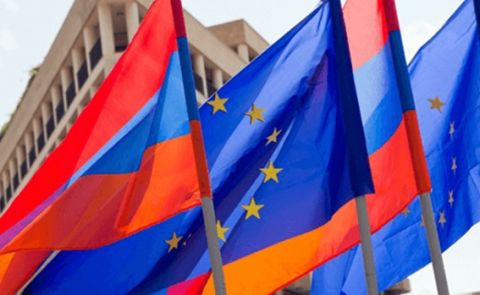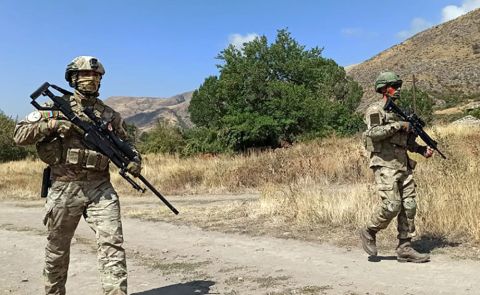
Ilham Aliyev Addresses Current Political Issues Domestically and Internationally
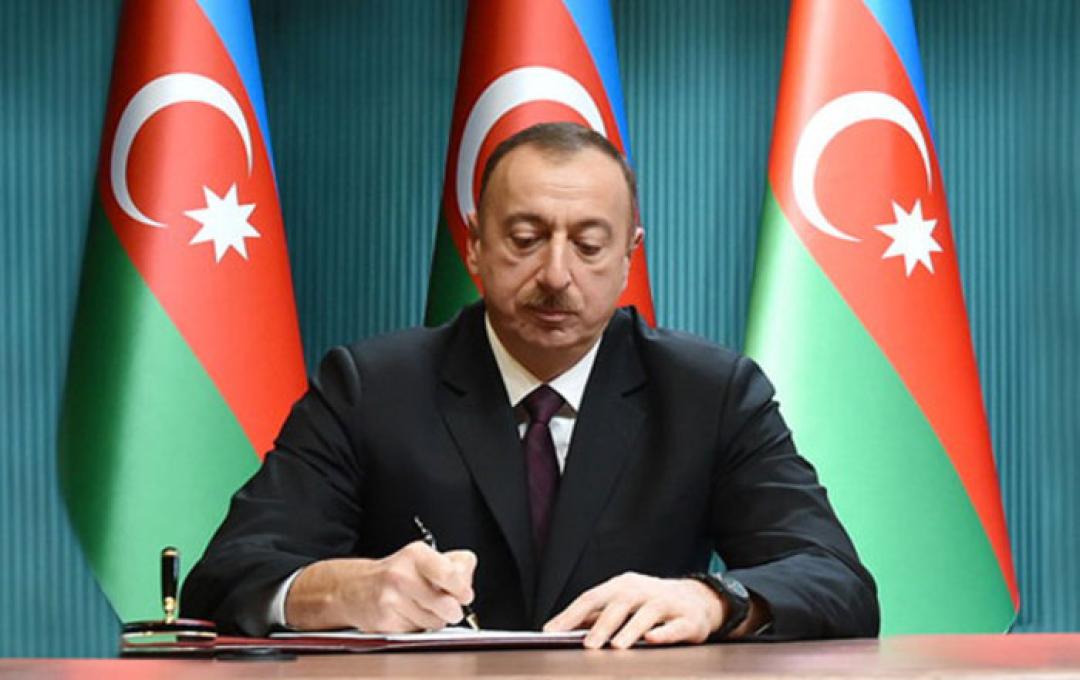
On May 3, Ilham Aliyev attended the international conference on "Shaping the Geopolitics of the Greater Eurasia: From Past to Present to Future" in Shusha, the Press Office of the Azerbaijani President reported.
Regarding the peace process between Armenia and Azerbaijan, Aliyev stated: "If Armenia doesn't want peace, there'll be no peace. And some countries didn’t sign a peace agreement. We know it from history, but that will not be good for Armenia or the region and, of course, not for Azerbaijan. Therefore, we still hope that they will be reasonable. And they will not use the same tactics as they used during the times of occupation when the former Minsk Group was in the picture, and for 28 years, did nothing by the way from the point of view of results." He added, "In my communications with the Armenian counterpart, I tried to explain that a peace treaty is in their interest, and the opening of communications is in their interest. They will be able to have access to different markets. And, of course, it will be beneficial for us because we want this chapter to be closed. And if you follow the chronology of statements and events, you will see that Azerbaijan offered to start talking about a peace agreement."
About the meeting in Washington, the president emphasized: "We have sent them four copies, four new variants of a draft of the peace agreement. They return their comments. We've been waiting for more than 40 days for the last comments, which we received just a week ago, just before the Washington meeting, because they realize that the Washington meeting will be absolutely useless without that. But we've seen in these comments again territorial claims against Azerbaijan. It was clear to Armenia and international players during my numerous communications with the US and EU officials that there should be a two-track approach. One is Armenia-Azerbaijan normalization and other communications between Azerbaijan's authorities and the Armenian community in Karabakh. Therefore, any attempt to put the so-called Nagorno-Karabakh Republic, which does not exist, into the text of the peace treaty is counterproductive. I hope Washington negotiations will produce - if not results, but at least signs of progress."
Regarding possible alignment with NATO, Ilham Aliyev said, "Azerbaijan, becoming a military ally to Türkiye, indirectly becomes a military ally to a certain degree to NATO. And by the way, there was, for several years, a kind of misperception of the road to Euro-Atlantic integration and cooperation by different countries of the former Soviet Union, whether it's NATO, whether it's EU. Yes, Azerbaijan did not engage formally in any form of agreement. We even did not sign an association agreement with the EU, unlike some of the members of the Eastern Partnership Program. But that was not because we didn't want to be closer. We don't want to have a kind of unilateral format of cooperation. To my mind, I am frank with you; the association agreement is not an agreement in the usual sense of the word. It's just a list of instructions presented to countries that joined this format. It is their choice, and we will respect it, but this is not our choice." The President continued: "The same with NATO. Some countries may seem to be very close. Some countries announced, I mean the countries of the Eastern Partnership, their target to be a NATO member. Some countries announced it for more than 15 years. By the way, NATO promised Ukraine and Georgia 15 years ago to become member states. I remember being present at the Bucharest NATO Summit when Ukraine and Georgia were rejected by some leaders of some leading European countries from the Membership Action Plan. But instead, it was announced that they would become a member. When? Nobody said it. Fifteen years have passed. So, we’re there where they are. But we signed an agreement with the NATO member state with the second largest military potential, which is serious. So, we always have chosen the paths of practical steps rather than declarations, which did not transform into tangible results."
In response to the question about Russia's potential collapse or disintegration and Azerbaijan's relations with North Caucasus federal republics, Aliyev said: "First of all, I think that we will not see the time when as you put it, Russia will be disintegrated. We don't foresee this scenario for Russia. We support the territorial integrity of Russia and all the countries. And any disintegration of any country, especially your neighbor, can pose a potential threat to you. With respect to our neighbors - our historical neighbors and brothers in Dagestan and Chechnya - we have relations based on our history, shared history, and brotherhood. We always wanted our brothers in Dagestan and Chechnya to realize their great potential fully. And today, we have a very active interaction format on different levels. Many delegations come from these two republics to Azerbaijan and from Azerbaijan. We've signed cooperation agreements and, just recently, a program for several years with Dagestan."
Regarding entry routes from Central Asia, the President stressed: "I know that Kazakhstan owns refining capacity, facilities in some Black Sea countries - so, we always were supportive to the plans of our neighbors across the Caspian to use Azerbaijan’s infrastructure for their exports. By the way, for many years, oil from Turkmenistan has been shipped through Azerbaijan through the Baku-Tbilisi-Ceyhan pipeline. I can also tell you something you may not know. Russian oil, some Russian oil, which Russia produces in the Caspian, is being shipped through Azerbaijan to Ceyhan. So, today we are a transit country for oil from Russia, Turkmenistan, and Kazakhstan. If the volume of oil grows, we will be only happy."
About Russia-Ukraine War, Aliyev stated: "It is difficult to predict what will be the end of the standoff, when and how Russia-Ukraine War will end, and what the geopolitical situation after this war will be. Because sooner or later, the war will come to an end. Though, we cannot exclude that how the war is conducted could be modified. But again, it's premature to talk about that. So, everything will depend on that, but it is clear that the world will never be the same as before the Russia-Ukraine War. This is absolutely clear. And I also think it is clear for many European countries, NATO members as they had to take more serious steps concerning security and defense capabilities because they, on the leadership level, admit that they did not do enough to supply their military with modern weapons and ammunitions."
Regarding the One Belt and One Road and Zangezur corridor: "Concerning the Zangezur corridor and, as far as I got it correctly, how China can facilitate. I think there's a big potential in the Zangezur corridor, and I already mentioned that the railroad connection between China, Kyrgyzstan, and Uzbekistan is started. The Zangezur corridor has a big potential to become one of the extensions of the One Belt and One Road and also can be part of the North-South Corridor. Because of entering Nakhchivan, then it already has a railroad connection with the Iranian railroad, which can deliver goods to the Persian Gulf. So, the Zangezur corridor is important not only for Azerbaijan and Armenia, but I think on a global scale."
On relations with Iran, he said: "The relations between Azerbaijan and Iran are currently at a very low level, and it is very difficult to say in advance whether they will remain at that level or whether they will go down or rise." Emphasizing that forecasting the relations between the two countries is very complicated, Aliyev said: "We have received some letters from Iranian officials. There were some phone conversations to normalize relations. But unequivocally, our demands are legitimate and reasonable. If these requirements are met, then we can talk about normalization. If not, it will stay that way. Again, this is not our choice. However, everyone in Iran, all circles, must finally understand that the language of threats and terror will not work with Azerbaijan. The sooner they understand this, the sooner we can see signs of normalization," the head of state said. The president said that the embassy of Azerbaijan in Tehran is currently closed. "This is my decision because the safety and life of our people is more important to me," he said.
See Also

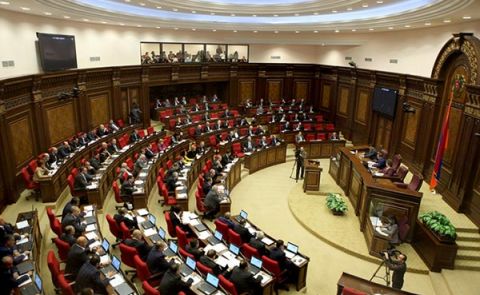
Heated Debate in Armenian Parliament Over Property Confiscations and Opposition Accusations
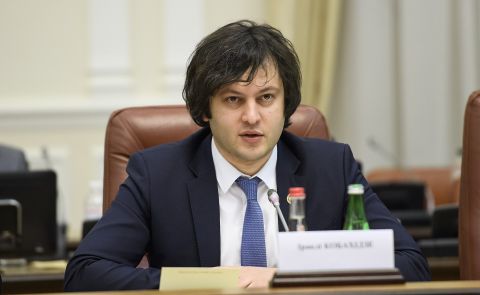
Georgian PM Addresses Trump in an Open Letter
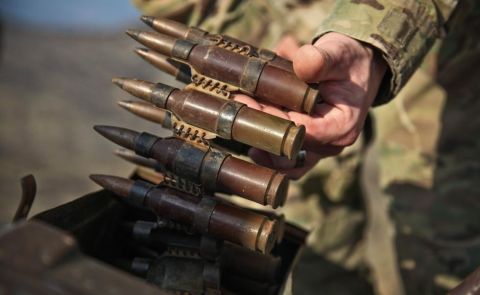
Weekly Brief on Military Situation in South Caucasus Countries (5–11 May)
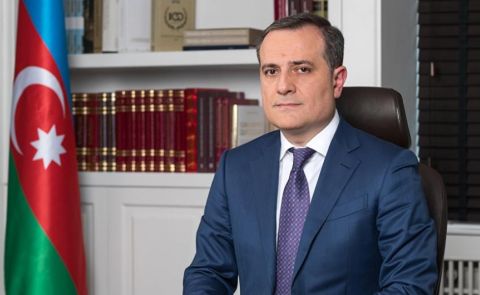
Bayramov Discusses Progress in Peace Talks, India-Pakistan Conflict, and Plane Crash Investigation
